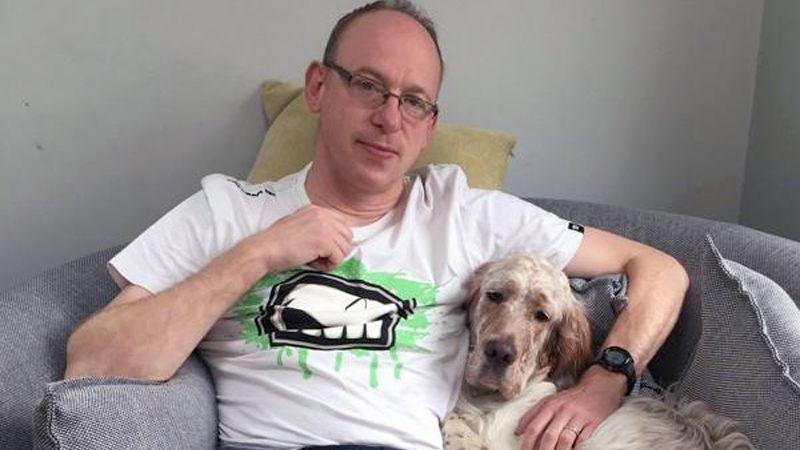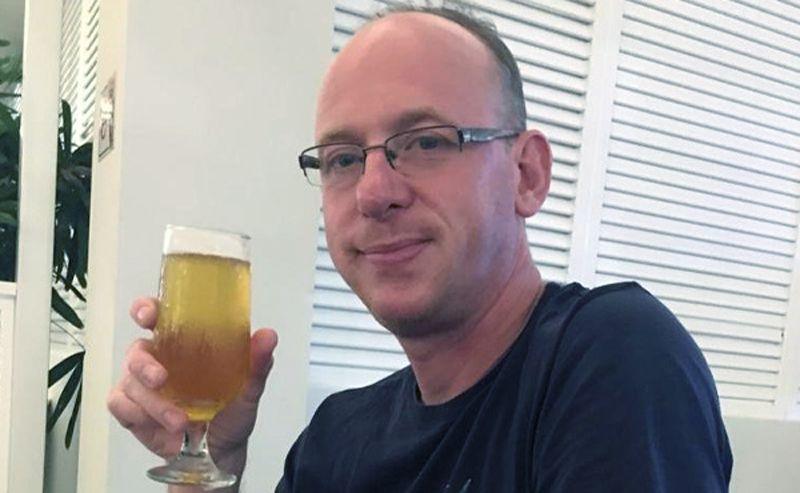Officer hit by train after being called to help man

Graham Saville, 46, died five days after he was injured
- Published
A police officer suffered "catastrophic" injuries when he was hit by a moving train after responding to a 999 call to help a vulnerable man, an inquest has heard.
Sgt Graham Saville was called to the railway line near Newark, Nottinghamshire, on 24 August, 2023.
On Monday, an inquest heard the 46-year-old father-of-two survived the impact and was taken to Queen's Medical Centre (QMC), but medics withdrew his life support five days later after consulting his family.
"It is incredibly sad Graham went to work as a public servant and did not return to his loving family," said coroner Laurinda Bower.
The inquest heard Sgt Saville was one of the officers dispatched after a man, referred to as Patient C, called East Midlands Ambulance Service (EMAS) at 18:47 BST.
The man told call handlers he had taken an overdose of caffeine and was going to walk in front of a train.
The man spent more than 18 minutes on the phone to EMAS staff and the inquest heard he told them he was in Hollowdyke Lane, near Balderton, walking towards the A1.
A statement from EMAS, read to the hearing at Nottingham's Council House, said Patient C had been advised to stay still while 999 responders located him, but he had continued walking.
EMAS received a second 999 call from Nottinghamshire Police at 19:09 advising Patient C had jumped off a bridge on to the tracks and had been electrocuted.
That call also confirmed Sgt Saville had suffered injuries to his left leg and arm.
The call handler was told Sgt Saville's colleagues had applied a tourniquet at the scene while waiting for ambulance staff to arrive.

Sgt Graham Saville suffered "catastrophic injuries"
The inquest heard paramedics, including an air ambulance crew, treated the officer as he lay on the embankment by the line,
He was then taken to QMC under police escort.
In a statement provided to the inquest, QMC consultant Dan Harvey said Sgt Saville survived the impact with the train, transport to hospital and initial surgery, but later concluded his injuries were "catastrophic" and there were no further options for treatment.
A post-mortem concluded he had died from multiple injuries including a severe brain injury after he was struck by a moving train.
'Brave officers'
Mr Saville's widow Joanne and other family members attended the first day of the hearing, which is expected to last up to two weeks.
Legal representatives from Nottinghamshire Police, Network Rail, train company LNER, the Health and Safety Executive (HSE), and the Independent Office for Police Conduct (IOPC) are also attending the hearing
Ms Bower said the purpose of the hearing was not to find blame for Sgt Saville's death but to establish how he had died.
However, she said she would consider whether she would need to write a Prevention of Future Deaths report after the hearing to "improve safety for all brave officers who go to work and should come home after their shift".
The hearing continues.
If you have been affected by the contents of the article, support is available through the BBC Action Line website.
Get in touch
Tell us which stories we should cover in Nottingham
Follow BBC Nottingham on Facebook, external, on X, external, or on Instagram, external. Send your story ideas to eastmidsnews@bbc.co.uk, external or via WhatsApp, external on 0808 100 2210.